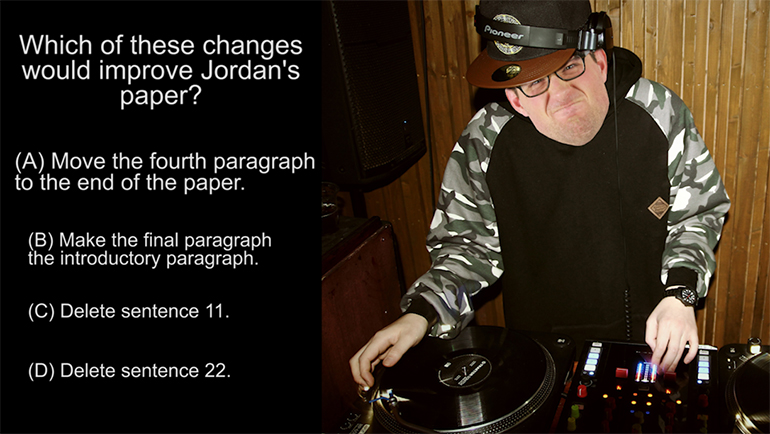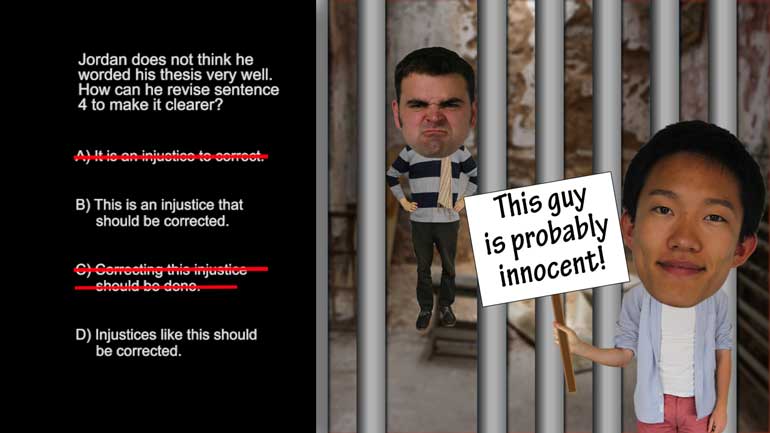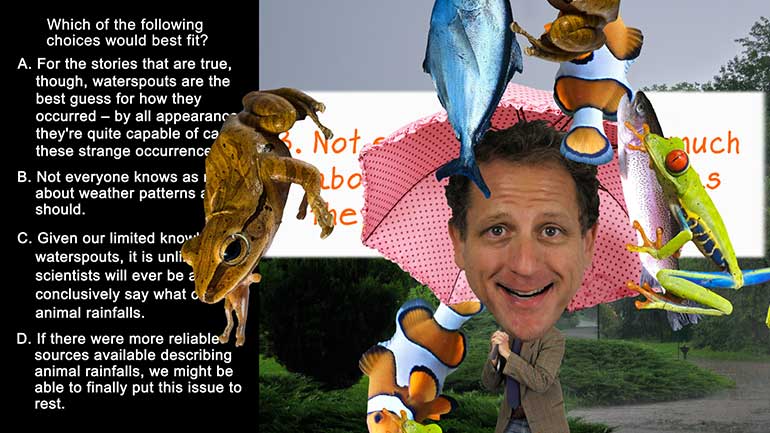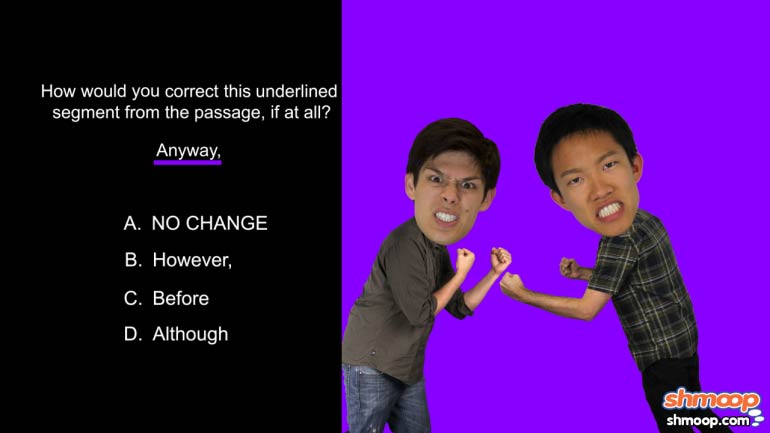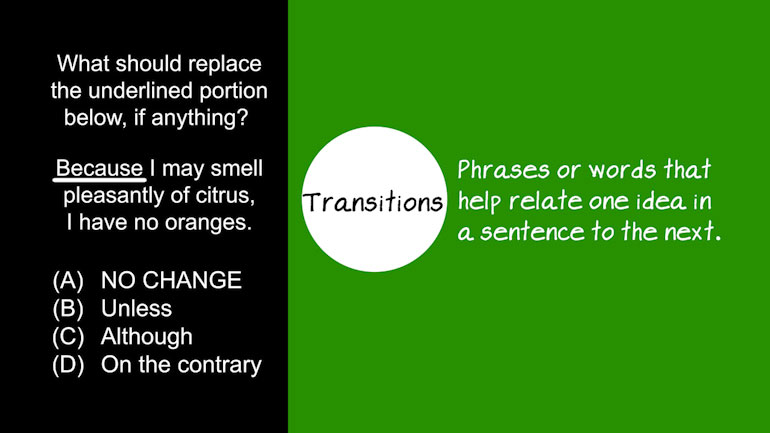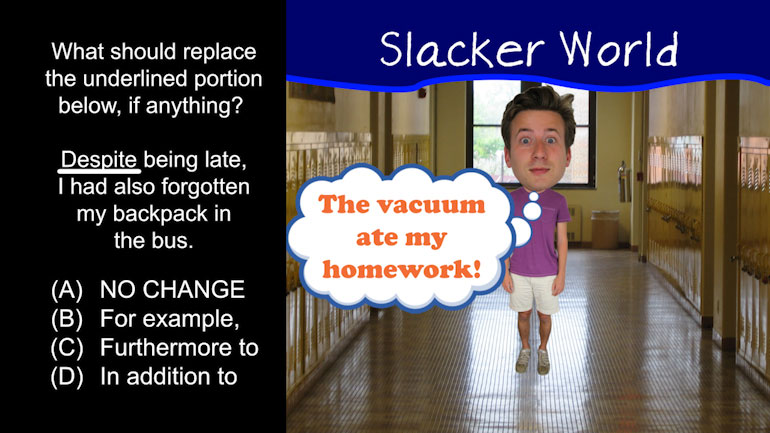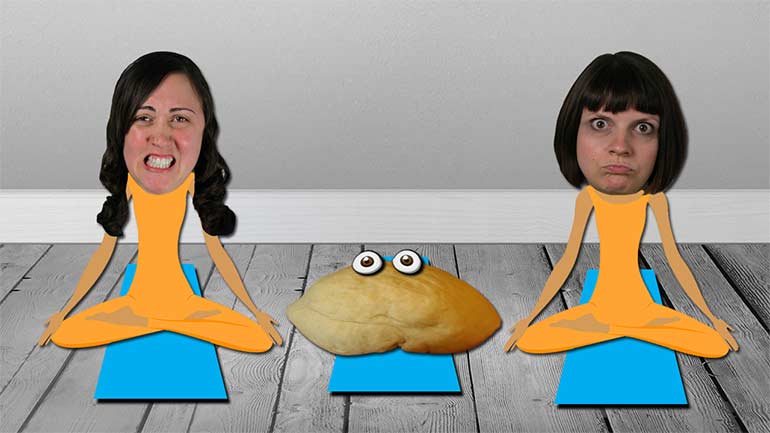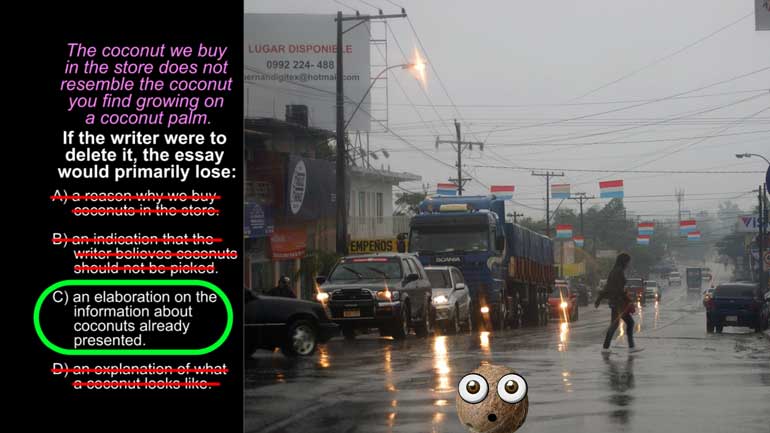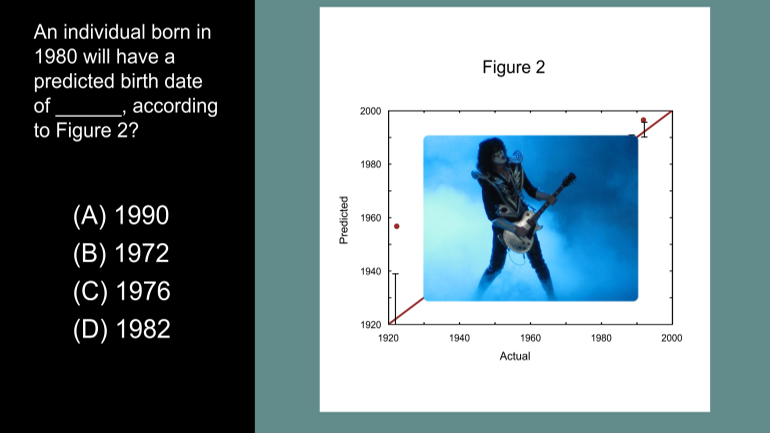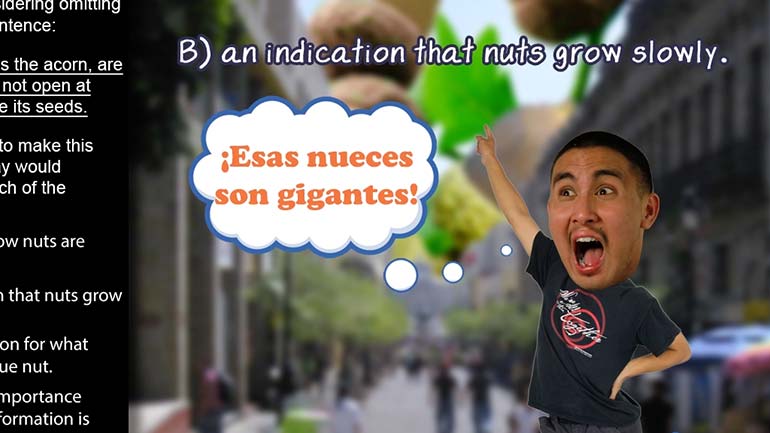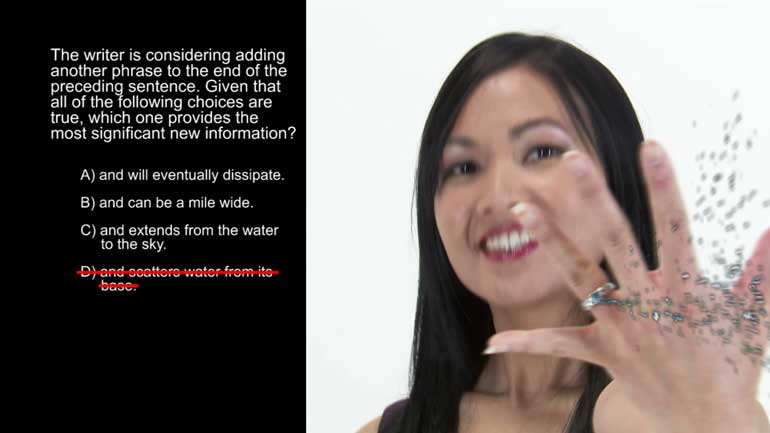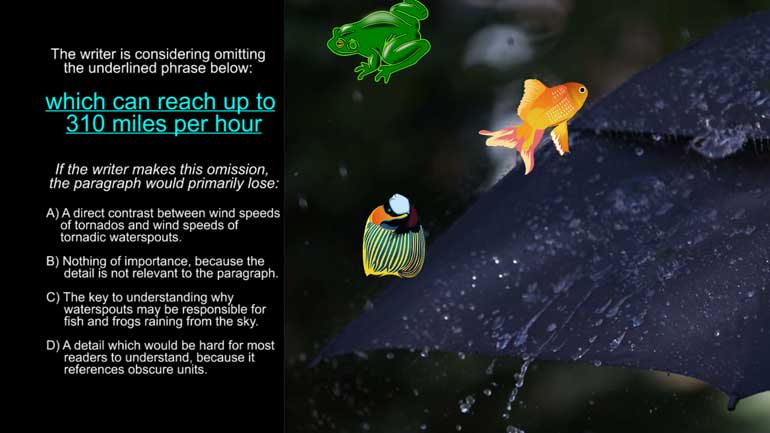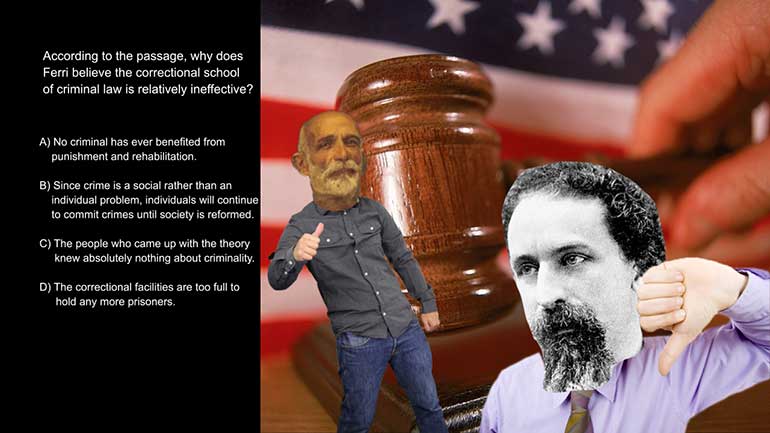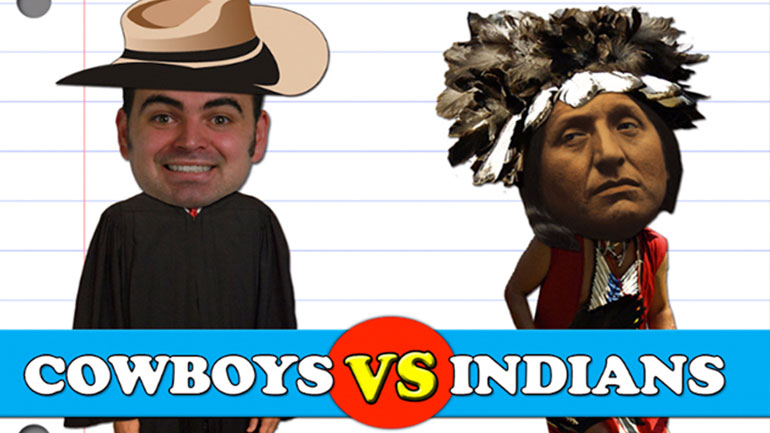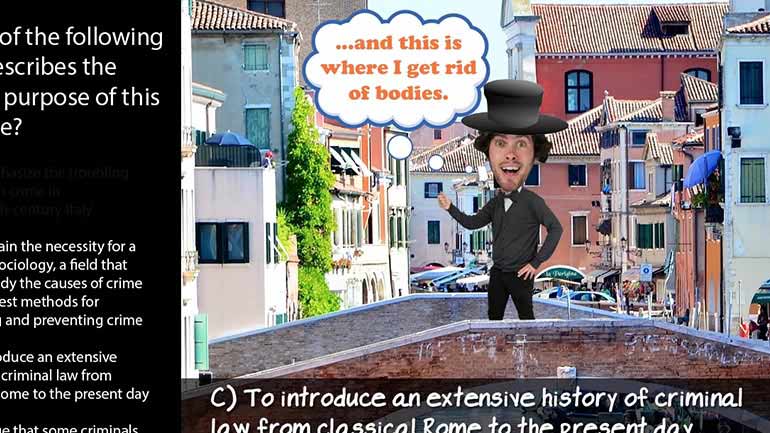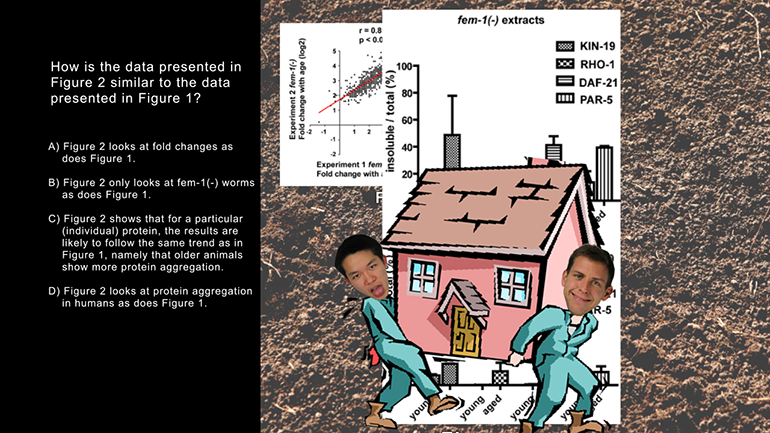ShmoopTube
Where Monty Python meets your 10th grade teacher.
Search Thousands of Shmoop Videos
Revision Videos 47 videos
Want to pull an Oliver Twist and ask us for more? We've gotcha covered. Click on this link for more Texas EOC goodness. Porridge not included.
ACT English 1.1 Organization 400 Views
Share It!
Description:
ACT English: Organization Drill 1, Problem 1. Which transition works best?
- Rhetorical Skills / Organization: Sentences and Paragraphs
- Product Type / ACT English
- English I EOC Assessment / Introductory and Concluding Paragraphs
- English I EOC Assessment / Organization
- Expository Texts / Rhetorical Devices and Transistions
- Oral and Written Conventions / Parts of Speech
- Essay Revision / Coherence, Organization, and Word Choice
- Essay Revision / Rhetorical Effectiveness and Use of Organization
- Rhetorical Skills / Organization
Transcript
- 00:04
Here's your Shmoop du jour, brought to you by transitions. The parts of speech that just
- 00:09
can't ever seem to stand still.
- 00:13
What should replace the underlined portion below, if anything?
- 00:18
Because I may smell pleasantly of citrus, I have no oranges.
- 00:29
A lot of our choices here are what's known as "transitions," phrases or words that help
Full Transcript
- 00:34
relate one idea in a sentence to the next.
- 00:37
Each one is like a bridge that tells us the relationship between the place we're leaving
- 00:41
and the place we're headed.
- 00:46
The sentence in question is in bad need of a transition word that expresses some kind
- 00:50
of contradiction.
- 00:52
We've got two basic ideas: the speaker smells like citrus, and he or she doesn't have oranges.
- 00:58
These two ideas are kind of at odds with each other, right? Therefore we need a transition
- 01:03
word that gets across this contradictory relationship.
- 01:06
So, we know we can eliminate choice (A).
- 01:09
"Because" is used when one thing is directly caused by the next. It's used for showing
- 01:14
logical linkages, not contradictions.
- 01:16
(B) is wrong because "unless" tries to make oranges conditional on the smell of citrus.
- 01:24
If it said something like, "Unless I have oranges, I won't smell like citrus," then
- 01:28
it would make more sense.
- 01:31
That isn't an option, however. So we can eliminate choice (B).
- 01:34
(D) gives us the introductory phrase "on the contrary." Introductory phrases set the stage
- 01:39
for the sentence to come, and they always require a comma to set them apart.
- 01:44
Choice (D) has no comma and sounds like total gobbledygook.
- 01:48
Because of its punctuation error, we don't have to give (D) another thought.
- 01:53
Choice (C) correctly uses the transition word "although."
- 01:58
It sets up the contradiction we've been looking for, making it understood that this person
- 02:02
smells like citrus even though he or she doesn't have any.
- 02:09
Our best guess is that the speaker ate all the oranges before he or she arrived, leaving
- 02:12
none for anybody else. What a jerk.
Related Videos
ACT English: Punctuation Drill 2, Problem 3. Where does the semicolon fit best?
ACT English: Punctuation Drill 2, Problem 2. Where should the semi-colon be placed?
ACT English: Punctuation Drill 3, Problem 1. How should this sentence be changed so that it is grammatically correct?
ACT English: Punctuation Drill 3, Problem 2. How should we properly hyphenate the words in this sentence?
ACT English: Punctuation Drill 3, Problem 4. Which choice best formats this list of items?

